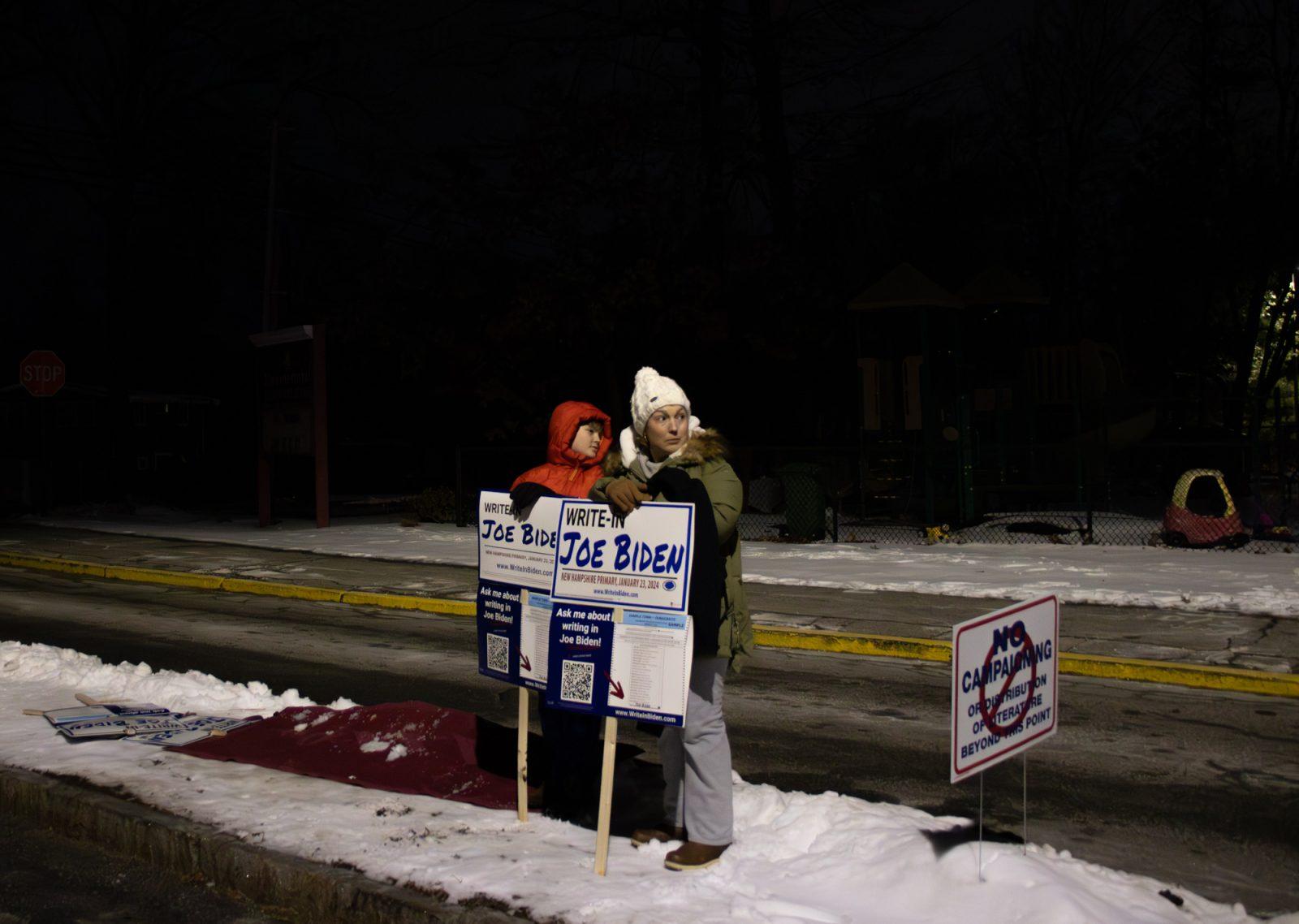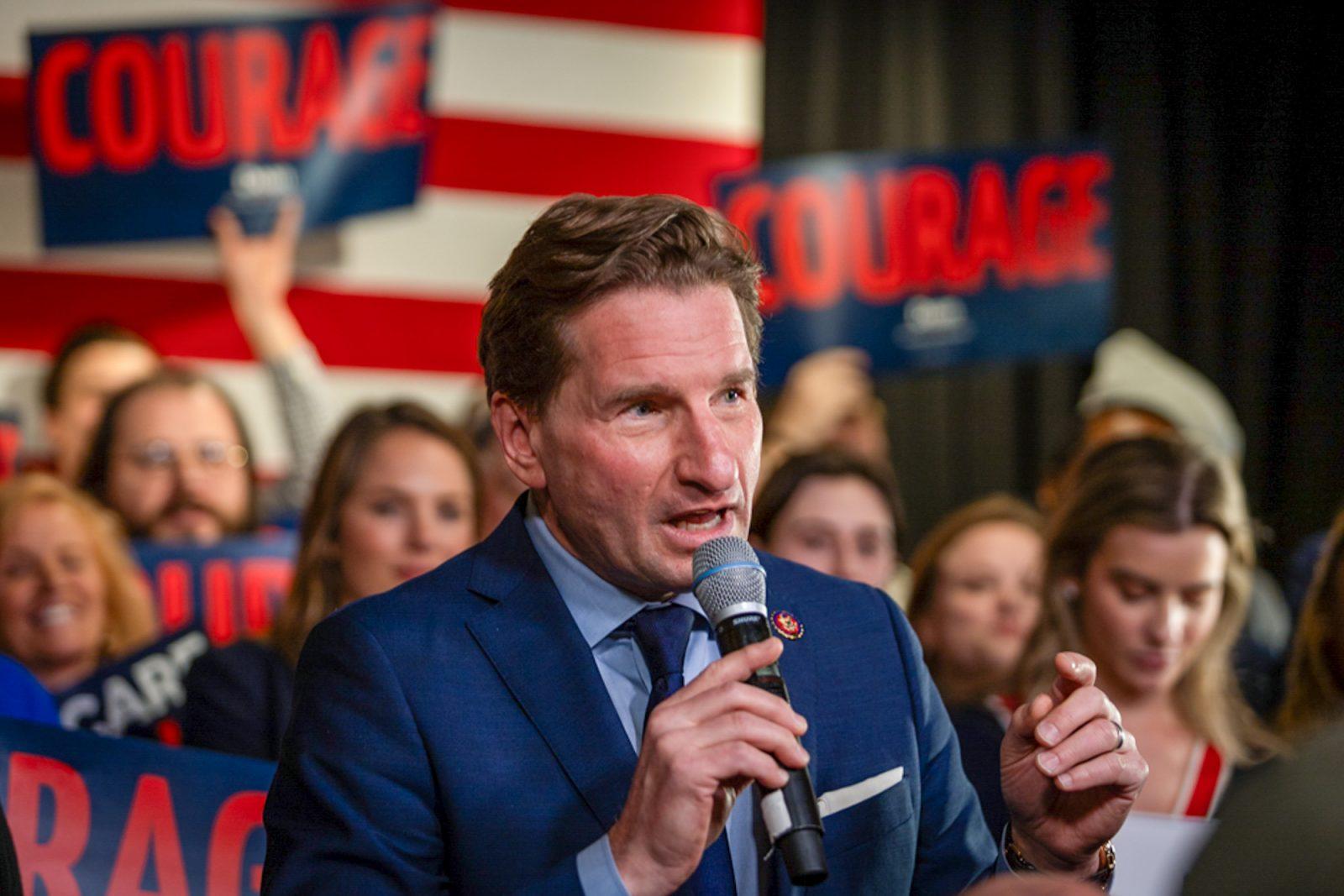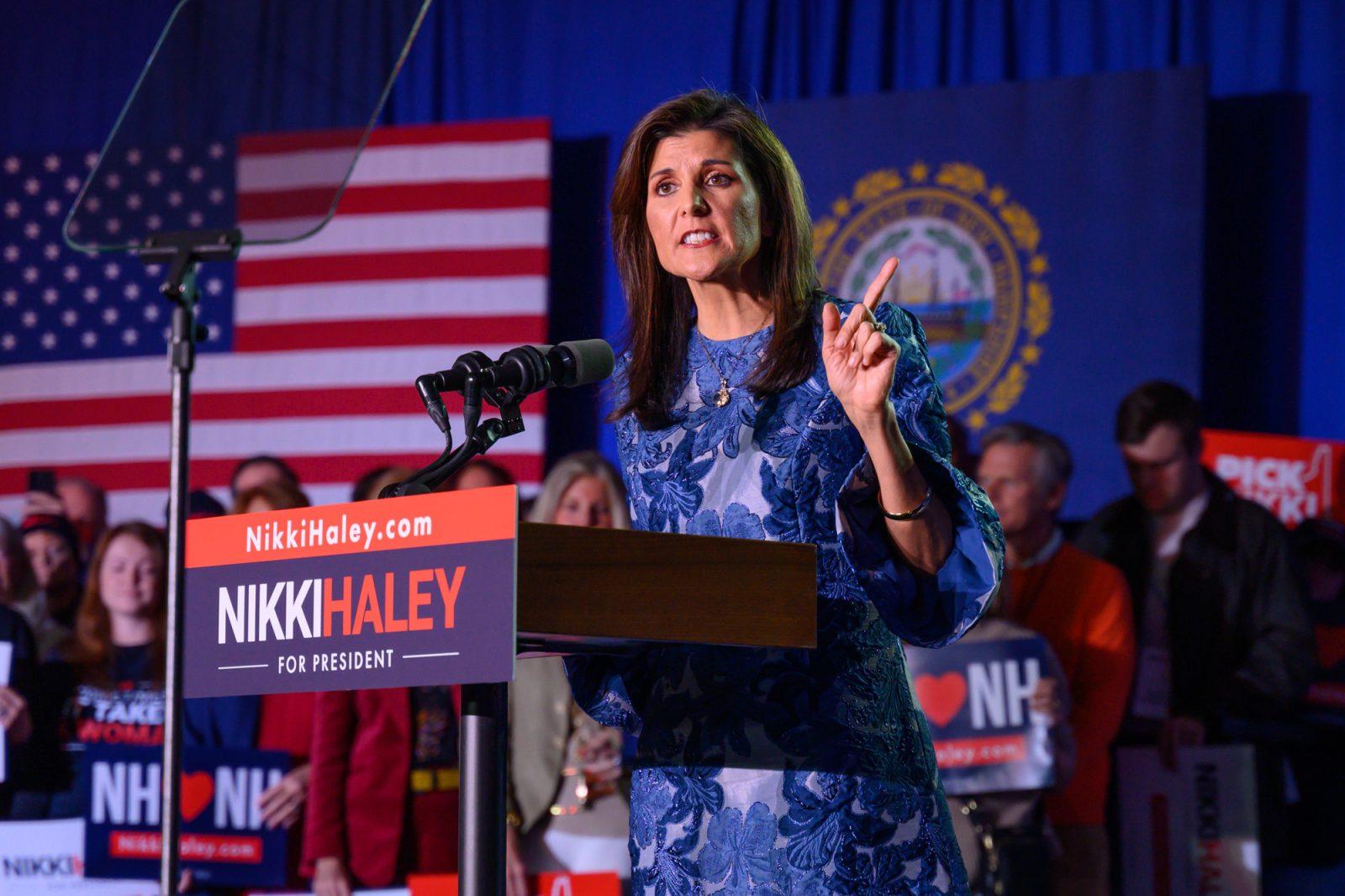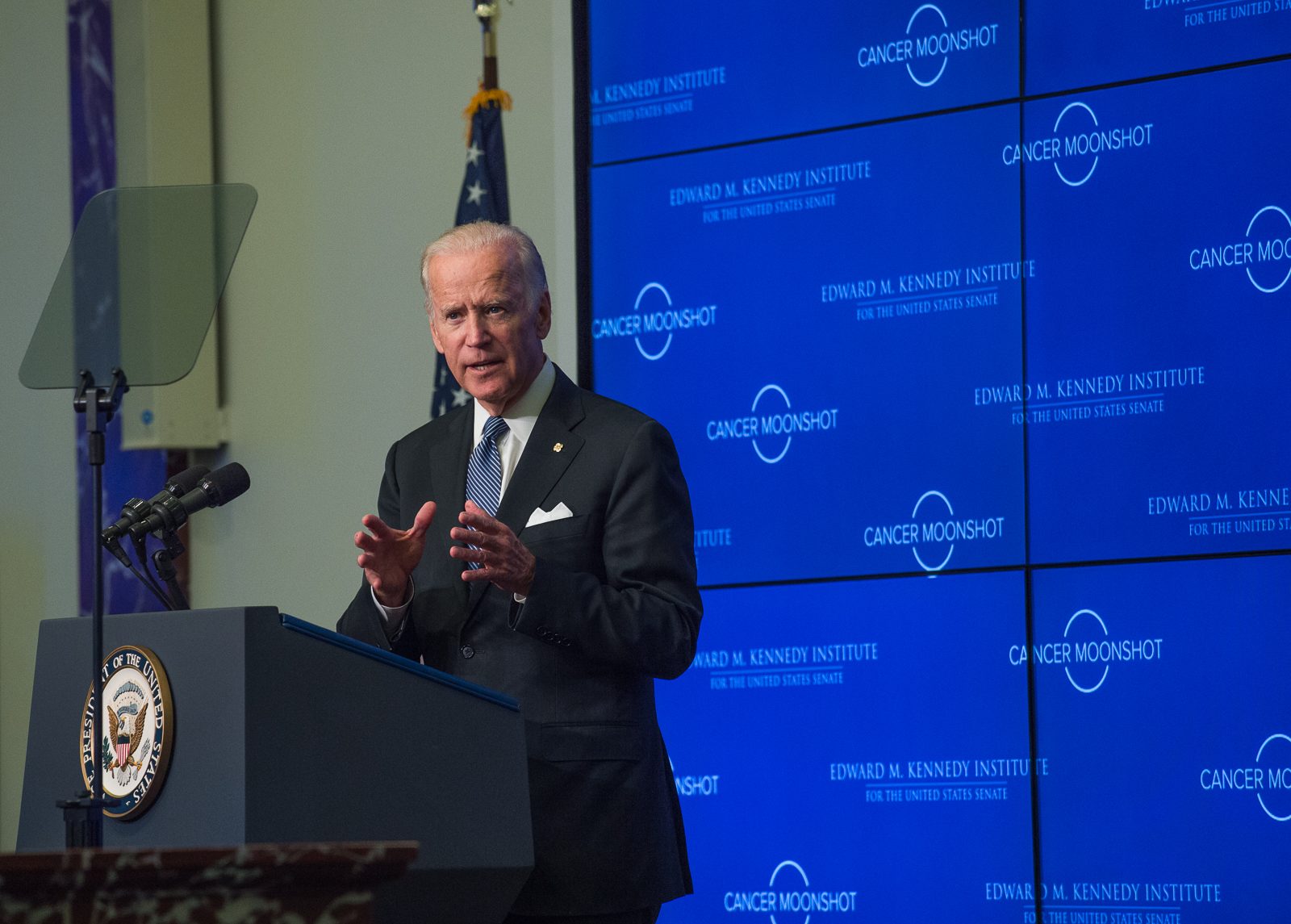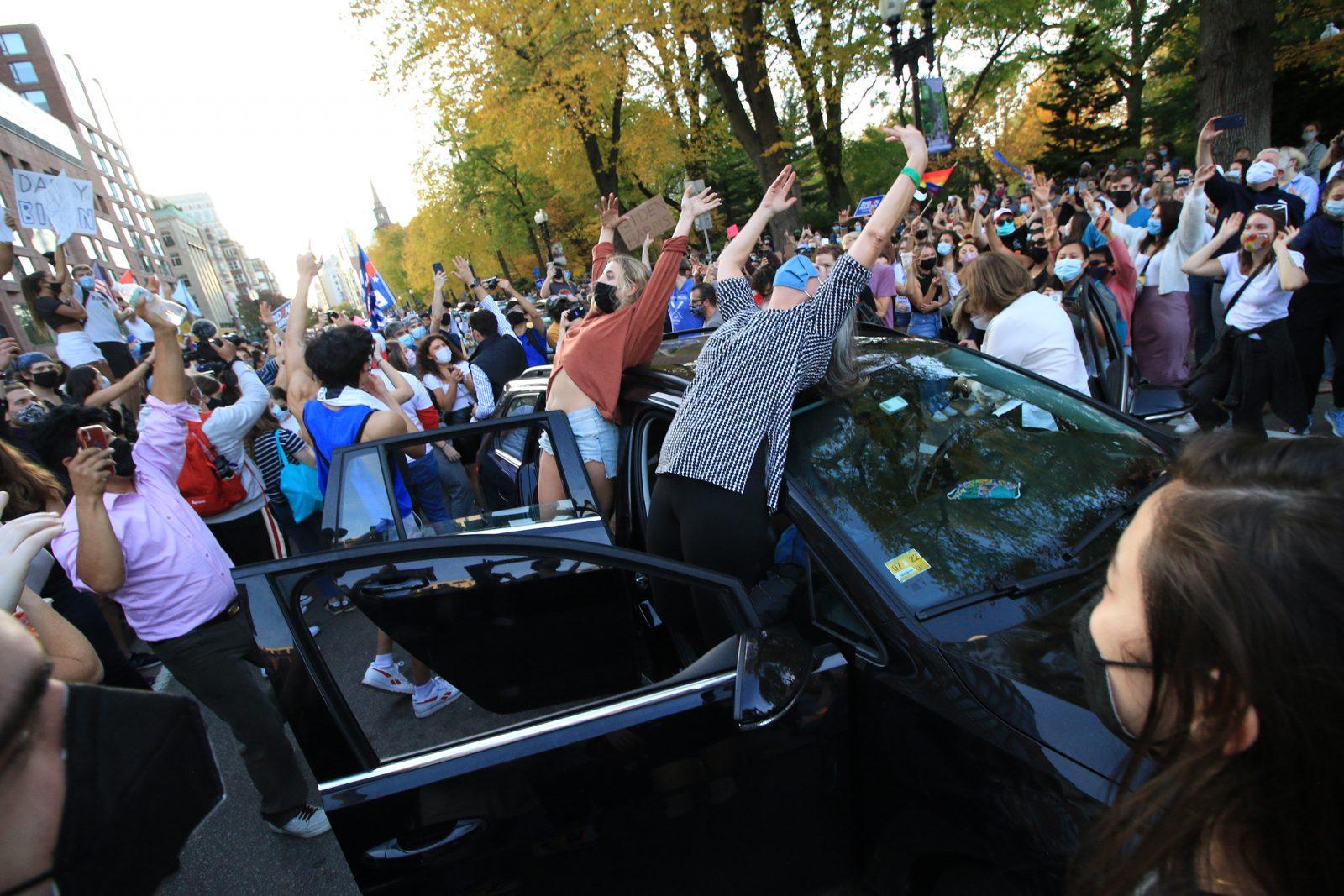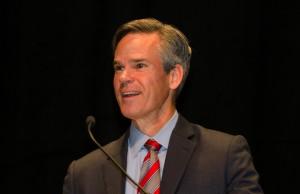
This is the third part in a five-part series of profiles about the gubernatorial candidates facing off in the Nov. 4 election.
When Jeff McCormick first moved to Boston, he had $800 in his pocket. Twenty-seven years later, the venture capitalist, who has since founded a company called Saturn Partners, is running as an independent candidate for governor in the November 2014 election. His experiences in company-building, education, energy, the environment, biotech software and real-world problem-solving have prepared him to lead the Commonwealth, he said in an interview with The Daily Free Press in his office on Federal Street.
McCormick grew up in a middle-class family and attended Syracuse University for his undergraduate and graduate education. In 1993, he founded Saturn Partners, a financing firm that invests in early-stage companies and start-ups. The passion he found through his work at Saturn Partners inspired him to launch his campaign in February, with the goal of bringing job growth to the Commonwealth and helping millions of people, he said, while working as a “hands-on manager” to start fixing the Commonwealth’s problems.
Felicia Gans: When did you decide to run for office? What prompted you to do so?
Jeff McCormick: Having talked to a number of both former and current elected officials after they would hear me speak at an event or just in a series of many deep conversations, quite a number of people said, ‘Jeff, you have the skills to make a huge difference. You really need to consider it.’ And I am at the stage of my life and the age where I can do it and make this kind of contribution, so that’s why I’m running.
FG: When did you realize that you didn’t associate with the left or right ends of the political spectrum? Did you always consider yourself an independent voter?
JM: I’ve always voted for whom I considered to be the best person and not blindly voting party lines because I know there are problems. We all know there are problems out there. In order for you to represent everyone well, you have to break from the dogma and just look at the solutions, find the solutions, discover them with people.
FG: When you decided to run, did you plan from the beginning to run as an independent?
JM: The problem with a party system is that they have extraordinary infrastructure, which helps people of course get elected, but then you’re tied to some of those very interests and some of the status quo that prevents you from doing the job as well as it could be done. I wanted the opportunity to represent everyone.
FG: What are the biggest flaws existing in the two-party system today?
JM: Coming up through the system, you get tied to the system, and what we need, if we’re going to have change, is a break from the system. We need bold solutions. We can’t continue to do what we’re doing a little bit better and make marginal incremental changes.
FG: The big slogan of your campaign is ‘Jeff for Jobs.’ What made that the focal point of your campaign?
JM: Having created thousands of jobs in my life and being someone who has spent my work and life building small businesses, which is where the vast majority of jobs are created, I sincerely believe that it is a job, a good-paying job, that lifts people out of poverty, and it is a job that provides some of the opportunity to buy a home and save for college and save for retirement. So for me, that is a major concern, and as I talk to people around the Commonwealth, that is a huge concern to people that there are just good job opportunities and that we’re educating our children for those very job opportunities.
FG: Based on your goals, what will make your campaign stand out from your opponents?
JM: I have a history of having really created the jobs. I’ve done it in many important sectors, which is very different. I have had to think out of the box because that’s what these early stage companies do. They are solutions to problems within markets, so it is applying all of the skills that I’ve built and experience that I’ve built over 27 years and just applying it to the public sector, which is in dire need of those very skills.
FG: Do you see yourself in the middle of the left-right political spectrum or do you see yourself on an entirely different spectrum?
JM: Well, I do see myself kind of in the middle. If you ask the typical person in Boston, ‘Are Jeff’s views, are those the kinds of views that you share?’ Interestingly, the vast majority of people would say yes. Pro-women’s rights. Pro-equality. But also someone who wants to run the state well and use technology to drive efficiency and get better outcomes and be accountable and be very transparent. That’s who I am. That is really a mix of a bunch of different philosophies.
FG: When it comes to the repeal of the casino law, where do you stand on that?
JM: Yes on the repeal because I don’t believe casinos are a strong economic development tool, and there are many negatives with casinos…I believe, having done it, there are better ways to develop these areas, but we still have to make some of the appropriate investments to make this happen.
FG: Do you feel Massachusetts Gov. Deval Patrick handled the issues with the Massachusetts healthcare website last year correctly?
JM: I think we should have taken an innovation waiver and been able to continue to improve and run the system that we already had as we were clearly a leader in this space and in the inclusivity of offering healthcare in the Commonwealth.
FG: What are your plans for higher education?
JM: I am a huge believer that we need to help educate people for vocational schools and technical schools… The purpose of education is to ultimately apply that to a job, so that’s something that we are not doing a good enough job throughout the country, and certainly here…We can also compress the time it takes for people to get degrees with more Advanced Placement courses, using online tools, which again I re-built companies in this space, so I’m very familiar with this, how scalable education can be. And the marriage of those two, online with conventional classroom learning, and also with internships and apprenticeships. Always driving to find the right mix of that is quite important.
FG: What separates your plan for education from those of the other candidates?
JM: Part of it is I, having used the technologies of tomorrow and having cutting-edge companies, I believe we can do that much faster than we’re doing that now. I also believe very strongly that we need to communicate with business communities and understand what skills they need so there isn’t a so-called skills gap…We have to close that. There are 100,000 open jobs in the Commonwealth right now, but there are twice as many unemployed people. Wouldn’t it be nice if those people had the skills for those jobs?
FG: How will you ensure that students who came to the Commonwealth for college will have the ability to find a job here after they graduate?
JM: If people look at the future and what the needs of businesses are and they’re educated for those needs, the job opportunities are here and will be here. What we need to do is make sure that indeed, people are educated and people do learn the skills they need for those jobs.
FG: In terms of affordable housing, does anything need to change in the housing market to make it easier for people to find affordable places to live straight out of college?
JM: Housing costs have increased tremendously. I remember when I moved here 27 years ago, I had to do the couch surfing because with my $800, I couldn’t afford an apartment…I got a low-paying job and just saved up as much as I could so I could get an apartment. And that is unfortunately, given the geographic limitations, that’s why I think it’s so important to grow jobs throughout the Commonwealth, because the housing costs in many areas of the Commonwealth are extremely reasonable compared to here [Boston]. So if the jobs are there and the cheaper housing is there and there’s good transportation infrastructure and there’s a renaissance within the city and there’s good restaurants, that’s where people want to live. Especially millennials…they want livable, walkable cities.
FG: How do you feel about current gun laws and where our Commonwealth is now?
JM: We have strict gun laws. We have to make sure we’re quite vigilant on background checks, and one of the biggest problems is just the influx of guns from both the North and the South into our Commonwealth, and that obviously is a problem.
FG: Are there any big changes you would make in regard to gun laws?
JM: Again, just the tracking of the flow of arms is the biggest issue.
FG: What are the big issues college students should be concerned with in this election?
JM: College students ought to know that if my generation doesn’t really start changing things and stop this thought that if you just throw more money at a broken system, it will fix itself — it won’t — they’re going to own the problems, and unfortunately, they’re going to have less time to solve the problems. And the problems are going to be bigger. So I think a younger generation has to know that the vote is important now.
FG: What makes you the best candidate for college students?
JM: A lot of people can relate to where I’m from. Middle class, hardworking, driven and someone who can think out of the box and someone who has the experience and has traveled a hard, but a good path to living a little version of the American dream. That’s what I think so many of us aspire to, and I hopefully am a reflection on the kind of person people want in office and the kind of person people want to be.



















































































































